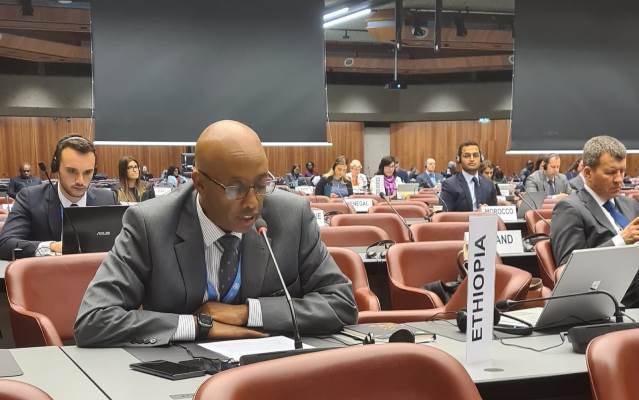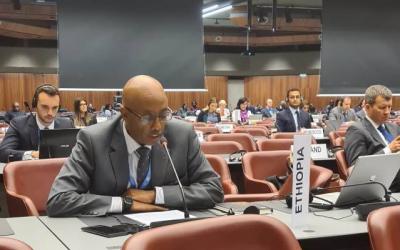The Ethiopian permanent mission to the United Nations office in Geneva emphasized the need for additional support for nearly 100,000 refugees who have fled to Ethiopia due to the recent conflict in Somaliland. Ethiopian Ambassador to the international organization, Tsegab Kebeu, urged all concerned global bodies during the 86th meeting of the Permanent Committee of the United Nations High Commissioner for Refugees to provide as much assistance as possible to the refugees who sought refuge in Ethiopia because of the conflict in the Las Qoray area of Somaliland. The number of refugees has reached a record high in Ethiopia. Accordingly, the United Nations High Commissioner for Refugees and the Refugee and Returnee Service (RRS) called on the international community on Tuesday to urgently provide food, shelter, medical support, and other necessary assistance.
Regarding the Grand Ethiopian Renaissance Dam, the Ethiopian Ministry of Foreign Affairs confirmed the completion of its construction, stating that the issue should be resolved through the African Union. In a statement, it asserted that the matter should not be taken to the Security Council or the Arab League and should be solved within Africa. The comments from the Ethiopian Foreign Ministry came after Egyptian Foreign Minister Sameh Shoukry warned yesterday about the ongoing unilateral practices by Ethiopia, which pose a significant threat to Egypt, already facing unique water scarcity.
Shoukry stated during a statement at the Arab Ministerial Committee to confront Israeli policies in Jerusalem: "The continuation of Ethiopia's unilateral practices can carry a great danger to Egypt, which suffers from unique water scarcity, being the driest country in the world, and its almost complete reliance on the Nile River." The Egyptian minister further expressed Egypt's reliance on its Arab brothers to urge Ethiopia to abandon its non-cooperative unilateral actions and show the political will needed to consider any of the compromises proposed during negotiations, which have proven to fully achieve Ethiopia's economic interests without undermining the livelihoods of the downstream countries.




